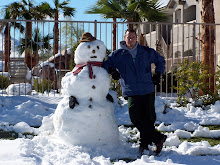America has never been a true democracy, is not now a true democracy, and most likely never will be a true democracy. But hardwired into our national subconscious, somewhere right alongside our love of liberty, is a desire to be a nation of the people, by the people, for the people- a democracy.
In the beginning, only a very small portion of Americans were entitled to vote. Even though that has grown to universal suffrage for adult citizens, the very nature of a federal government carries with it certain undemocratic aspects. Whether it is the non-representative nature of the Senate or the indirect election of our president, certain undemocratic safeguards of the autonomy of states are wired into the system.
Why did the Founders bother with those states rights? Why do we still concern ourselves with them?
To me, the answer seems clear enough. The larger a supposedly democratic entity becomes, the less freedom of choice and liberty in general is preserved to individual citizens. The larger the democratic body, the more "losing" votes there will be, each losing vote representing a citizen who must live under government chosen not by his voice.
As a nation of over 300 million persons, it is inevitable that we would have many different cultures, religions, views on society, and so on. As the Civil War showed, sometimes doing what is right requires literally beating down those who are doing wrong.
But to whom shall be grant the task of deciding what is "right" and what is "wrong"? If fifty-five percent of Americans felt that having more than one child was a crime against the environment, would they be justified in declaring war on multi-children families? Must their percentage be higher, say 70%? May the elected representatives of that original 55% exercise the beat-down power on their behalf?
The difficulty we now face is that we have a central government that was given the power to correct certain injustices (e.g. institutionalized racism), but that power came with no strings attached and can now be used to force every state and the people therein to do the bidding of the unelected bureaucrats enforcing that expanded power which was given them by unelected judges.
The operative word there being "unelected". Try as they might, supporters of the "living" Constitution will never be able to adequately explain why the amendment process should be ignored in favor of judicial reinterpretations.
Time may yet prove that America needs an all-powerful central government, one in which a handful of states- and thereby a minority of the populace- and a slew of unelected officials get to dictate the terms of our liberty. Even a light understanding of the history of the great republics cannot escape the realization that there is only a very fine line between a democratic government and an oligarchy.
Subscribe to:
Post Comments (Atom)




No comments:
Post a Comment